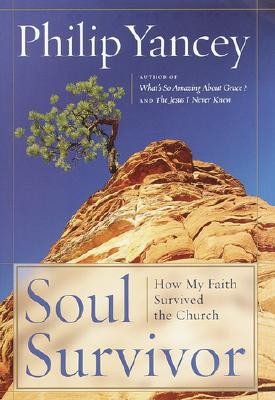Impeachment, the Bible, and the (Dis?)Unifying Power of Texts

This week as, political geek that I am, I have tuned in periodically to the Senate impeachment trial, it has crossed my mind more than once that there is a similarity between what is going on in Congress, and what goes on in church. The sparring between the president’s legal team and the house managers has revolved around interpretation of documents — important documents that define a community. As someone who’s grown up Protestant, I find myself wondering: isn’t this what has happened in the Christian church? And hasn’t it followed a similar trajectory?
We’re often reminded of the deepening divides in American culture. Whether it’s political philosophy (less government or more government?), taxation (pay for a small core of publicly shared things like infrastructure and education, or contribute more for free college, Planned Parenthood, and universal health care?), or moral values (abortion, climate change, the widening wealth gap), the faultlines are more and more sharply defined, giving us a sense of irreparable fractures in our national identity and common ground.
Our founding documents lay out some high ideals, and in the past these ideals have lifted us to a higher standard. Slavery and legal segregation, child labor, and (to an extent) unregulated monopolies are just a few examples of deep wrongs that have come onto our radar and been abolished or greatly reduced because of ideals like personal liberty, the equality of people made by a loving Creator, certain basic, “inalienable” human rights, and an elected government stabilized by checks and balances.
But these days the founding documents that have served as such a strong foundation seem more like a battlefield. Argument over the interpretation of these texts has always played a huge part in our self-definition, whether through the courts or through the various blows that have come to government — assassinations, impeachments, wars. What we see in the impeachment proceedings is, in one sense, nothing new.
But in another sense, we seem to be in a new phase, one in which the possibility of coming together, despite disagreements, on the ground of shared ideals captured in those documents is perilously diminished.

In the church, something similar seems to have happened. From its inception, the Church has been defined by efforts to define and clarify doctrine. The early writings were further subjected to interpretation and codified in the Bible (or Bibles, with and without the Apocrypha). Then came the split between East and West, and finally the Reformation ushering in an explosion of Protestant denominations. In fact, if a quick Wikipedia visit is to be believed, each of those three categories is subdivided into different groups. It’s frankly dizzying to try to take account of how many expressions of Christianity there are — all based on a common core of belief, but colored by interpretive differences considered serious enough to splinter off into new denominations.
We may try to put a good face on all of this by saying these many factions of Christianity accommodate different sensibilities — like diverse members of a family that provide homes for all kinds of believers who share the core beliefs. But I’m not so sure. Can this really be God’s original plan? When Jesus says to Peter, “Upon this rock I will build my church,” is this what he envisioned?
It sure looks more like division than unity.
I wonder if the Church and the government both show the same dynamic at work when it comes to the role of texts in a community. Founding documents bring people together — to a point. But something more is needed if the unity is to last. In Christianity, the “something more” is God himself, dwelling in the human heart. Rightly understood, the Bible is one of several traditional sources of revelation; it should never take the throne (though I believe the division in the Church comes, largely, from this very mistake).

And in the country? I don’t mean to be purely pessimistic about the process playing out this week in Congress. I’m not ready to say our institutions are failing entirely. I would assume an impeachment dispute should always feel alarming to both sides, sort of like an argument erupting among family members at the dinner table. But the difference between an argument that destroys, and one that clears the air and improves the bonds, is the ability to come together and heal. Is that going to happen for the Congress, or the country?
What is the “something more” that is supposed to unify us as a nation? It’s worth thinking about — especially since one has the uncomfortable sense that some shared core may be slipping away.




